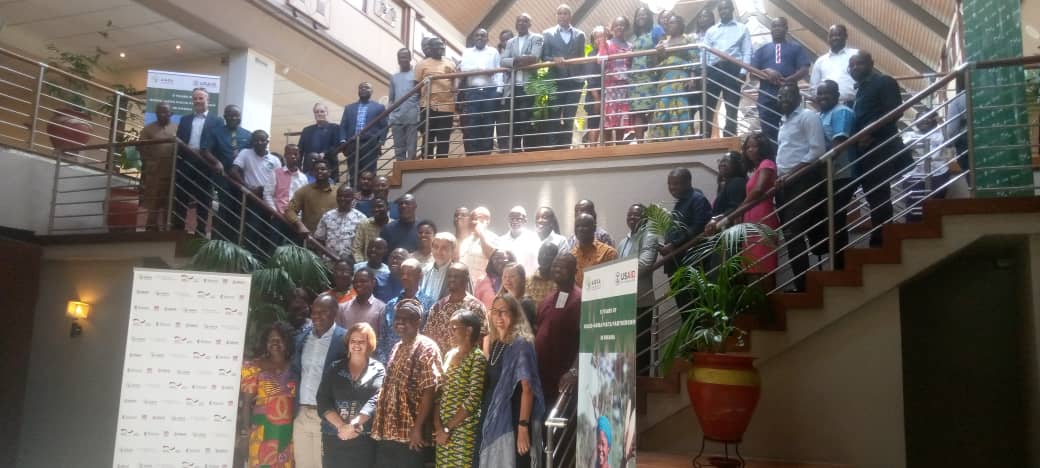
The Deputy Minister of Food and Agriculture in charge of crops, Mr Yaw Frimpong Addo has lauded efforts by non-state actors to partner government to succeed in its Transformational Agricultural Agenda Drive.
He said partnerships by NGOs such as AGRA focused on agriculture have helped initiated several measures including the Planting for Food and Jobs (PFJ), One Village One Dam, and Rearing for Food and Jobs programmes, to address the challenges confronting the sector.
“It is significant to say that the food crops model under the PFJ chalked a lot of success starting with 200,000 beneficiaries who accessed fertilizers and improved seeds in 2017 and the numbers increasing to 1.7 million in 2021,” he said.
The Deputy Minister was speaking at the United States Agency for International Development (USAID) – AGRA Partnership for Inclusive Agricultural Transformation in Africa (PIATA) learning event.
Held in Accra on Tuesday, the event highlighted key insights and learning from the implementation of the USAID-AGRA PIATA program as well as provided shared outcome stories, best practices and feedback to improve future interventions.
PIATA was launched in 2017 as a strategy for transforming agricultural systems through integrated delivery across economic zones and value chains.
The programme sought to transition Africa’s agriculture from subsistence to sustainable business occupations by enhancing in-country coordination and deepening engagements and collaboration with the private sector
Though Mr Addo said the government’s attempt to make agriculture the driver of Ghana’s economy, the activity was being hampered by low farm productivity, lack of access to quality agro-input and the low adoption of agronomic practices due to limited access to extension services, among others.
Juliette Lampoh, Country Director, AGRA explained that the efficiency of the seed sector of any country greatly impacted its agricultural production sector adding that AGRA was particularly interested in the adoption of quality s fertilizer.
Madam Asseta Diallo, Senior Programmes Officer (AGRA) Ghana said the organisation had over the last five years focused on increasing farmers’ access to and the adoption of quality seeds and fertilizers and for her, the country’s dependence on organic fertilisers for soil nutrients may not help achieve food security.
She explained that Ghana had a poor fertility status where about 65 per cent of agricultural land was depleted or severely degraded due to human activities such as mining.
That situation, she pointed out, demanded the combination of organic and inorganic fertilizer in the agricultural production chain to ensure that the country produces enough to meet the food needs of its citizens.
BY BENEDICTA GYIMAAH FOLLEY
